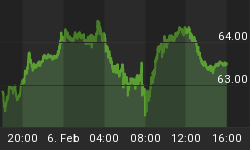As the price of oil reverses course again and closes in on the unheard of price of $150 per barrel, Americans are finally responding to the pressure and have cut back on gasoline consumption. According to a report this week, Americans used 3.3% less gasoline than at the same time last year and usage now stands at a five-year low. Although the relative merits of slowing energy consumption is a subject upon which reasonable minds can disagree, the drop is nonetheless an extremely rare event in American economic history. Many on Wall Street are cheering the possibility that further "demand destruction" will ultimately lead to significantly lower oil prices. After all, this is basic economics. Prices are a function of supply and demand, and as demand drops, prices must follow. This is simple logic, wrongly applied.
What is missing from this analysis is that oil is a global commodity, and its price is not simply a function of demand in America. As demand is destroyed here, it is being created abroad. The result will be rising oil prices, despite the fact that Americans will be using much less.
In countries where currencies have risen against the dollar, oil price rises have been much milder. Given the strengthening economies overseas, and the slower price increases in those markets, foreign demand continues to rise, just as higher U.S. dollar prices cause it to fall here. In addition, central banks in nations where currencies are pegged are continuing to print huge quantities of money. This huge monetary stimulus is feeding oil demand, as foreign consumers use the new cash to buy gasoline.
In addition, as economic growth abroad far exceeds it here at home, foreigners are using their increased wealth to buy more automobiles. So while car sales are falling though the floor in America, they are rising briskly around the world. Take a look at what is happen in Russia, where booming car sales have resulted in Russia surpassing Germany as Europe's largest automobile market. We are talking about the former Soviet Union, where not too long ago many comrades still traveled in mule-drawn buggies. So as poor Americans drive fewer miles, wealthier Russians more than make up the difference.
Here lies the source of our problems. When the dollar was king, demand here was strong. American consumers, armed with the mighty greenback, flexed their muscle and priced foreign consumers out of the market. Now that the dollar is a 98 pound weakling, foreign consumers are returning the favor, and are kicking sand in our faces. So as more goods and resources are consumed abroad, Americans will be forced to consume less. Demand creation abroad leads to demand destruction at home.
More importantly, demand destruction in America will not be limited to gasoline, but will encompass a wide variety of resources and consumer goods, as strong demand abroad prices more Americans out of more markets. In the end, America's gargantuan trade deficit will return to surplus, not because of a highly overhyped export boom, but of an import bust.
For a more in depth analysis of our financial problems and the inherent dangers they pose for the U.S. economy and U.S. dollar denominated investments, read Peter Schiff's book "Crash Proof: How to Profit from the Coming Economic Collapse." Click here to order a copy today.
More importantly, don't wait for reality to set in. Protect your wealth and preserve your purchasing power before it's too late. Discover the best way to buy gold at www.goldyoucanfold.com, download our free research report on the powerful case for investing in foreign equities available at www.researchreportone.com, and subscribe to our free, on-line investment newsletter at http://www.europac.net/newsletter/newsletter.asp.















